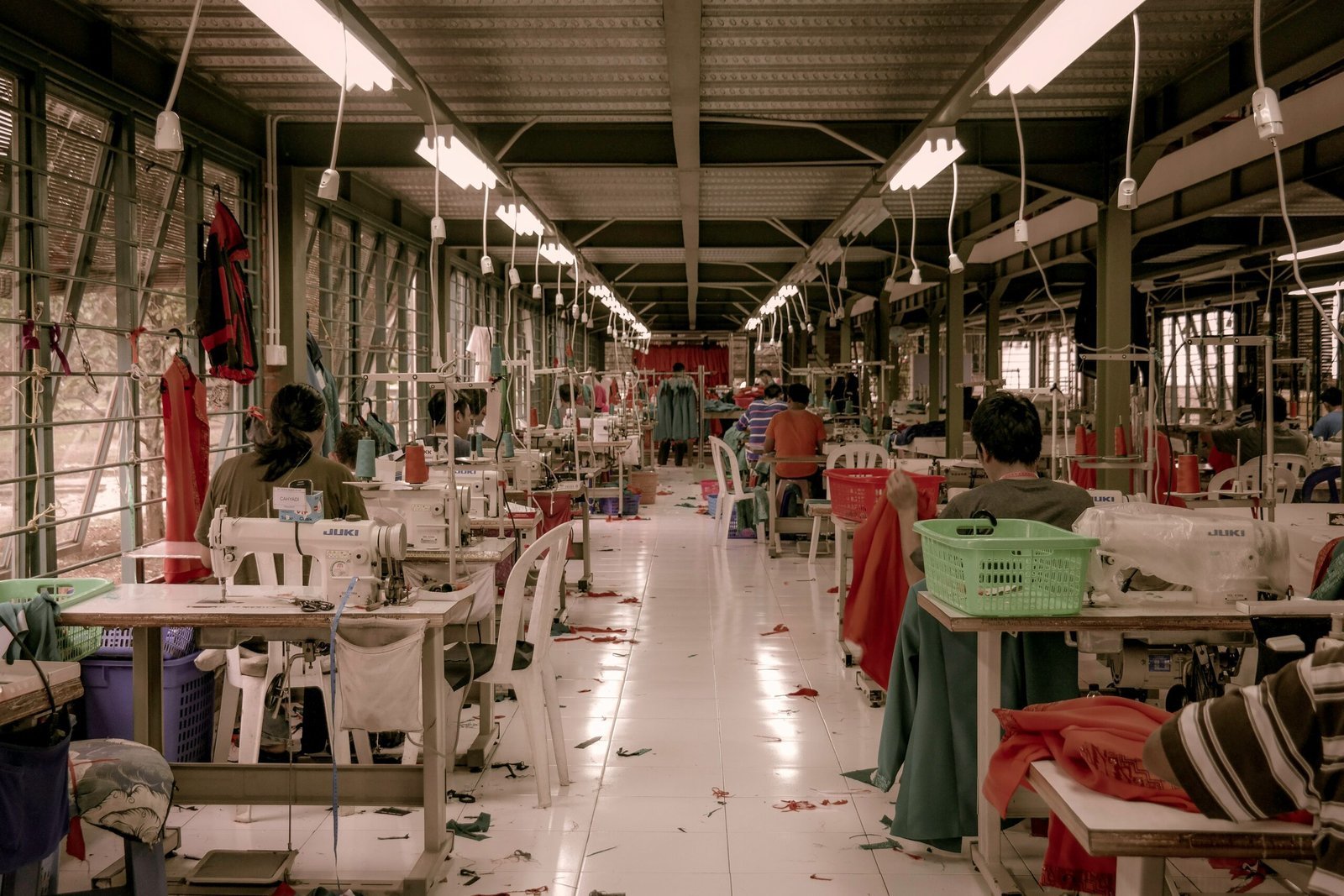
The Role of Fashion in Social Responsibility
Fashion has always been a powerful force in shaping culture and society. Beyond just being a means of self-expression, the fashion industry holds a significant influence on social responsibility. From ethical sourcing of materials to fair labor practices, fashion brands have the power to make a positive impact on the world. In recent years, there has been a growing awareness of the need for greater social responsibility within the fashion industry.
One of the key aspects of social responsibility in fashion is the concept of ethical sourcing. This involves ensuring that the materials used in the production of clothing and accessories are obtained in a manner that is environmentally sustainable and socially responsible. This includes considerations such as fair trade practices, environmental impact, and animal welfare. By prioritizing ethical sourcing, fashion brands can contribute to the well-being of communities and the planet.
Furthermore, the treatment of workers within the fashion industry is a critical aspect of social responsibility. Many clothing and textile workers around the world face harsh working conditions, low wages, and lack of job security. Fashion brands that prioritize fair labor practices and provide safe working environments demonstrate a commitment to social responsibility. Additionally, efforts to support gender equality and diversity within the workforce contribute to a more socially responsible fashion industry.
Sustainable Development in Fashion
As the world grapples with environmental challenges such as climate change and resource depletion, the concept of sustainable development has become increasingly important. In the context of fashion, sustainable development encompasses practices that minimize the industry’s impact on the environment while promoting economic and social well-being. This includes initiatives related to eco-friendly materials, energy efficiency, and waste reduction.
One of the key pillars of sustainable development in fashion is the adoption of eco-friendly materials. This involves using renewable resources, such as organic cotton and bamboo, and reducing reliance on environmentally harmful substances. Additionally, the recycling and upcycling of materials can help minimize waste and reduce the industry’s carbon footprint. By embracing sustainable materials, fashion brands can play a significant role in promoting environmental conservation.
Energy efficiency is another crucial aspect of sustainable development in the fashion industry. From the manufacturing process to transportation and retail operations, energy consumption is a significant contributor to the industry’s environmental impact. By investing in renewable energy sources and implementing energy-efficient practices, fashion companies can reduce their carbon emissions and contribute to sustainable development.
Waste reduction and responsible disposal of products are also central to sustainable development in fashion. The industry has grappled with issues such as textile waste and the environmental impact of discarded clothing. Through initiatives such as take-back programs and circular design principles, fashion brands can minimize waste and promote a more sustainable approach to product lifecycle management.
The Intersection of Social Responsibility and Sustainable Development
When considering the responsibility of fashion, it is essential to recognize the interconnected nature of social responsibility and sustainable development. These two aspects are not mutually exclusive but rather intersect in various ways to create a more holistic approach to responsible fashion.
For instance, ethical sourcing of materials not only contributes to social responsibility by supporting communities and workers but also aligns with sustainable development by minimizing environmental harm. Similarly, fair labor practices and the promotion of safe working conditions not only uphold social responsibility but also contribute to the well-being of individuals and communities, thus supporting sustainable development goals.
Furthermore, the adoption of sustainable materials and practices in fashion not only reduces the industry’s environmental impact but also aligns with social responsibility by demonstrating a commitment to the welfare of future generations and the planet. By embracing sustainable development, fashion brands can contribute to the long-term well-being of both people and the environment.
In conclusion, the responsibility of fashion extends beyond the realm of style and trends. Fashion has the power to influence social responsibility and sustainable development. By prioritizing ethical sourcing, fair labor practices, sustainable materials, and responsible waste management, the fashion industry can play a pivotal role in creating a more responsible and sustainable future for all.
The Intersection of Fashion and Social Impact
The fashion industry has the potential to go beyond just creating stylish garments and accessories. It can be a powerful platform for driving positive social change. Fashion brands are increasingly recognizing the importance of aligning their business practices with social impact initiatives that address global challenges such as poverty, education, and healthcare.
One area where fashion is making a significant social impact is in supporting marginalized communities. Many fashion brands are partnering with social enterprises and non-profit organizations to provide employment opportunities, skills training, and economic empowerment for individuals from underserved communities. By integrating these initiatives into their supply chains, fashion companies can create sustainable livelihoods and contribute to the overall well-being of these communities.
Another way fashion is driving social impact is through philanthropic initiatives. Some fashion brands have established charitable foundations or partnered with non-profits to donate a portion of their profits or products to causes such as disaster relief, education, and healthcare. These efforts not only provide direct support to those in need but also inspire consumers to engage with and support social responsibility in the fashion industry.
Furthermore, fashion can be a powerful tool for raising awareness and advocating for social issues. Fashion designers and brands have used their platforms to address topics such as gender equality, racial justice, and LGBTQ+ rights. Through creative campaigns, collaborations, and runway shows, the fashion industry can amplify important conversations and inspire social change.
Fashion’s Role in Ethical Consumerism
As consumers become increasingly conscious of the impact of their purchasing decisions, the fashion industry is being challenged to adopt more ethical and transparent practices. Ethical consumerism, which prioritizes the responsible production and consumption of goods, is gaining momentum in the fashion sector.
One of the key aspects of ethical consumerism in fashion is transparency. Consumers are demanding greater visibility into the supply chains and manufacturing processes of fashion brands. By providing detailed information about their sourcing, labor practices, and environmental impacts, brands can build trust and foster a more informed and conscious consumer base.
Another important element of ethical consumerism in fashion is the promotion of circular economy principles. This involves designing products with the intention of extending their lifespan, encouraging reuse and recycling, and minimizing waste. Fashion brands that embrace circular economy models, such as offering rental or resale services, are meeting the growing demand for more sustainable consumption patterns.
Ethical fashion also encompasses the fair treatment of workers throughout the supply chain. Consumers are increasingly scrutinizing brands’ labor practices and are seeking out companies that prioritize worker rights, safe working conditions, and fair wages. By addressing labor rights issues, fashion brands can demonstrate their commitment to ethical consumerism and appeal to a more socially conscious consumer base.
Moreover, the rise of ethical fashion is driving innovation and the development of new sustainable materials and production processes. As consumers demand more eco-friendly and ethically sourced fashion, brands are investing in research and development to create innovative solutions that minimize the industry’s environmental impact.
The Importance of Inclusive and Diverse Fashion
The fashion industry has long been criticized for its lack of inclusivity and diversity, perpetuating narrow and often unattainable standards of beauty. However, in recent years, there has been a growing movement towards greater representation and inclusivity in fashion.
One of the key aspects of inclusive fashion is the representation of diverse body types. Fashion brands are now recognizing the need to cater to a wide range of body shapes and sizes, moving beyond the traditional narrow standards that have historically dominated the industry. This shift towards size inclusivity has empowered individuals of all shapes and sizes to feel confident and comfortable in their clothing.
Another important aspect of inclusive fashion is the representation of diverse ethnicities, cultures, and identities. Fashion has the power to celebrate and showcase the rich tapestry of human diversity, and brands that embrace this concept are making significant strides in promoting cultural understanding and representation.
Inclusive fashion also encompasses the representation of people with disabilities. By designing clothing and accessories that are accessible and functional for individuals with various physical and cognitive abilities, fashion brands can create a more inclusive and equitable industry.
The benefits of inclusive fashion extend beyond just the individuals directly impacted. By promoting greater diversity and representation, the fashion industry can contribute to broader societal change, challenging stereotypes and fostering a more inclusive and accepting culture. As consumers increasingly demand and support inclusive fashion, brands that embrace this trend are positioning themselves as agents of positive social change.
The Future of Socially Responsible Fashion
As the fashion industry continues to evolve, the focus on social responsibility and sustainable development will become increasingly critical. Fashion brands and consumers alike are recognizing the need for a more holistic and responsible approach to the industry’s operations and impact.
One of the key trends in the future of socially responsible fashion is the integration of technology and innovation. Advancements in areas such as artificial intelligence, blockchain, and renewable energy are enabling fashion brands to enhance their sustainability efforts and improve supply chain transparency. For example, the use of blockchain technology can help track the origin and ethical sourcing of materials, while AI-powered tools can optimize resource allocation and reduce waste.
Another emerging trend is the rise of collaborative initiatives and industry-wide partnerships. Fashion brands are recognizing the value of working together to tackle complex social and environmental challenges. By pooling resources, sharing best practices, and advocating for policy changes, the industry can drive collective progress towards greater social responsibility and sustainable development.
The future of socially responsible fashion also involves a deeper engagement with consumers. As consumers become more conscious of the impact of their purchasing decisions, fashion brands must strive to educate, empower, and inspire their audiences to make more informed and ethical choices. This can involve initiatives such as product traceability, consumer education campaigns, and the promotion of sustainable consumption patterns.
Furthermore, the future of socially responsible fashion will likely see a greater emphasis on circular economy principles and the development of innovative business models. Fashion brands that prioritize closed-loop systems, where products are designed for longevity, reuse, and recycling, will be well-positioned to thrive in a more sustainable and responsible industry.
Ultimately, the future of socially responsible fashion will require a holistic and collaborative approach, where fashion brands, policymakers, industry organizations, and consumers work together to drive positive change. By embracing social responsibility and sustainable development, the fashion industry can become a powerful force for good, positively impacting communities, the environment, and the world at large.


